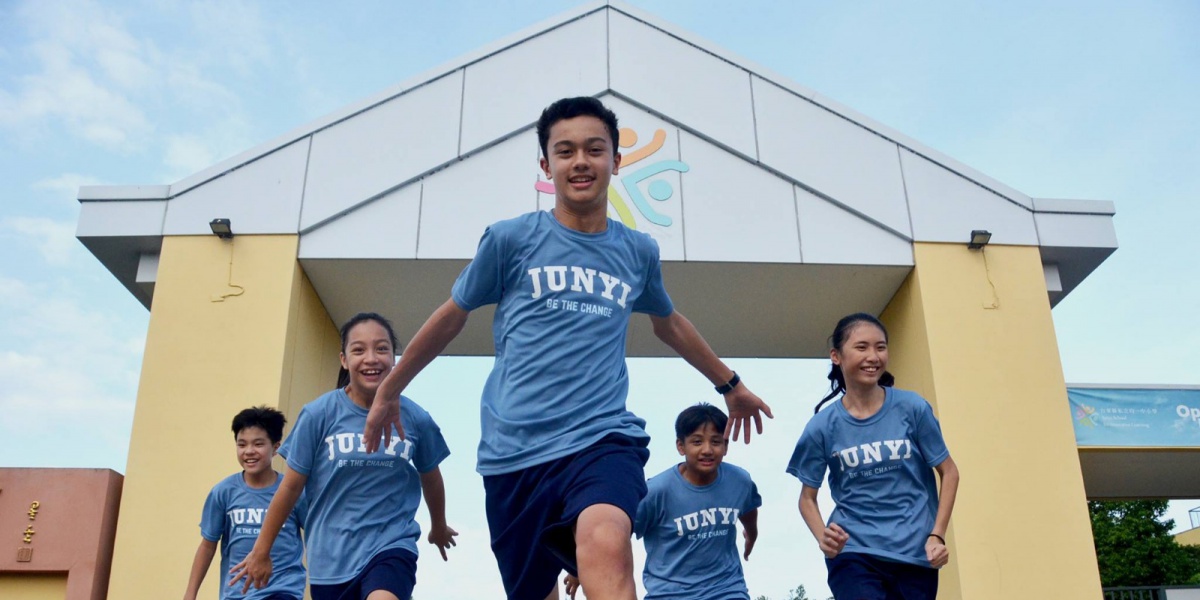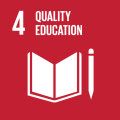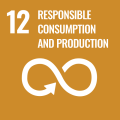The Alliance Cultural Foundation’s 10th Year Reflection: Rural Education
As the urban and rural gap increases, with a lack of resources, it becomes increasingly challenging for the rural to change for the better. ACF Chair Stanley Yen's initial vision to establish a school was to develop talent and potential through quality education for the financially underprivileged youths in Taiwan's remote Hualien-Taitung (Huatung) region to change the region's future and villages.
2011, Fo Guang Shan's Master Hsin Yun entrusted Chair Yen with the Junyi School of Innovation, a then elementary and middle school. In the first year, ACF established a scholarship program for seventh-grade and above students from the Huatung region who were financially underprivileged to study at Junyi based on merit. To this day, Junyi continues to reserve one-third of its secondary school allotment for Scholarship Program students in hopes that through quality education, these youths can one day be the leaders for Huatung's economic sustainability. To date, ACF is connected with 50 regional elementary schools; the Scholarship Program has supported 150 students. With Huatung's rich indigenous culture encompassing several indigenous tribes, Junyi's student body is naturally multiracial. Junyi prides itself on its diversity and hopes to nurture respect, harmony, and love among individuals of all backgrounds.
In 2015, Junyi's senior high school was established, and its first graduates were in 2018. Subsequently, the Junyi Innovative Study Abroad Program was created to support students needing financial aid to pursue study overseas in a two-year community college program or at the United World College to improve their English ability and expand their horizons and future direction.

Facing the Global Education Reform Movement and the rapid technological change, Chair Yen believes education reform in Taiwan should:
- Replace the one-size-fits-all learning mentality with personalized learning to discover talents and develop youths to their fullest potential.
- Enforce bilingualism (Chinese, English) or trilingualism (Chinese, English, programming language) because language is a tool to communicate with the world.
- Nurture good character, life competencies, work ethic, and skills.
- Emphasize collaboration, communication, critical thinking, and creativity.
To nurture good character is to develop self-directed, disciplined, responsible, compassionate, communicative, teamworking, independent, and critical-thinking individuals. Nurture life competencies by exposing youths to the arts, sports, and nature not only fosters fulfilled and confident individuals but also provides them with a valuable tool to self-medicate and adapt to the constantly changing environment. Through various programs at Junyi, Chair Yen's vision for education is being realized.

The Education Vision of Junyi School of Innovation
1. Nurture talent, life skills, confidence, and self-discovery
Junyi's 7th to 12th grade Outdoor Education program best demonstrates its value in connecting youths with the environment. The program explores local environmental issues and challenges students outdoors, encouraging self-discovery and breakthroughs. It also aims to develop courage, teamwork, persistence, and problem-solving skills. For students who excel in practical over theoretical learning, the program is a prime opportunity for teachers to discover their talents in an environment where they learn best.
One teacher reflects, "When challenged to dive three meters deep to carry a rock to the surface at the Flowing Lake, students from Orchid Island's Yami tribe could easily retrieve the rock; when mountain climbing and camping, students from the Bunun tribe felt particularly at home. Through Junyi's diverse programs, every student can be recognized for their strengths and talents, which helps nurture confidence and reflects their improvement in other subjects."
When students connect with the mountains and ocean, they learn to coexist with nature. They appreciate their environment more and become mindful of protecting it by reducing waste and recycling.

2. Nurture bilingualism, internationalism, and critical thinking
Whether it is to connect with people from overseas or to become an English-friendly region that encourages more international visitors to Huatung, English is a tool for communicating with the world.
In 2017, Junyi's English class shifted to an English-only space for learning and communicating. Besides teaching with an English-only curriculum, it incorporates online resources as part of the learning process. Junyi also creates opportunities for students to practice English, from guiding overseas guests on campus tours to virtual exchanges with overseas students, volunteering at Ironman Taiwan events, and taking extracurricular courses led by the Junyi international faculty. Through its efforts, Junyi hopes to not only nurture English but also develop their internationalism and higher critical thinking ability.
In 2019, Junyi was granted the International Experimental School status, which was remarkably meaningful for rural education.

3. Nurture respect and compassion
Junyi's Combined Studies program teaches students first to understand locally and then to pay attention internationally. As part of the program, Junyi's 10th graders visit Indigenous villages to learn village culture and knowledge; 11th graders are brought to engage with migrant workers and immigrants through song, food, language, and culture learning.
Through the Combined Studies program, Junyi hopes the takeaway is not a skill but a different perspective and attitude that will shine a positive light in the face of discrimination.
4. Cross-curricular learning
Junyi's senior high school spotlights three innovative subjects: International Hospitality, Modern Arts, and Sustainable Architecture. Students learn through practice, which nurtures their problem-solving and self-learning ability. Each of the three subjects teaches with real-life scenarios and aims to inspire care for humanity, nature, the arts, and the sciences.
Junyi invites professionals to work with teachers to create the curriculum while incorporating different subjects into each program. Students are also guided to discuss current news, to understand other perspectives, and to think and learn using each perspective.

5. Nurture problem-solving ability
From 2020 onwards, Junyi students who are entering the 12th grade will be required to take on summer internships as part of the graduation requirement. Students must intern at organizations related to its three innovative subjects – International Hospitality, Modern Arts, or Sustainable Architecture. Past students have interned at ACF, hotels, and bed and breakfast establishments.
The required internships aim to nurture problem-solving skills through experience of real-life situations in the workforce; they seek to nurture an understanding of what is required in the workforce and discover their unique talents and abilities.
6. Nurture discipline and self-learning
Boarding schools in Taiwan enforce strict rules. At Junyi, the boarding life hopes to offer students safety and nurture self-discipline and self-learning. The boarding staff takes on the parenting role, filling the gap, particularly for students who do not have a role model at home. On weekends, they cook, bake, self-learn, and are involved in social work. In nurturing these practical and inner abilities, Junyi's boarding life is an important element for changing the futures of the rural.






